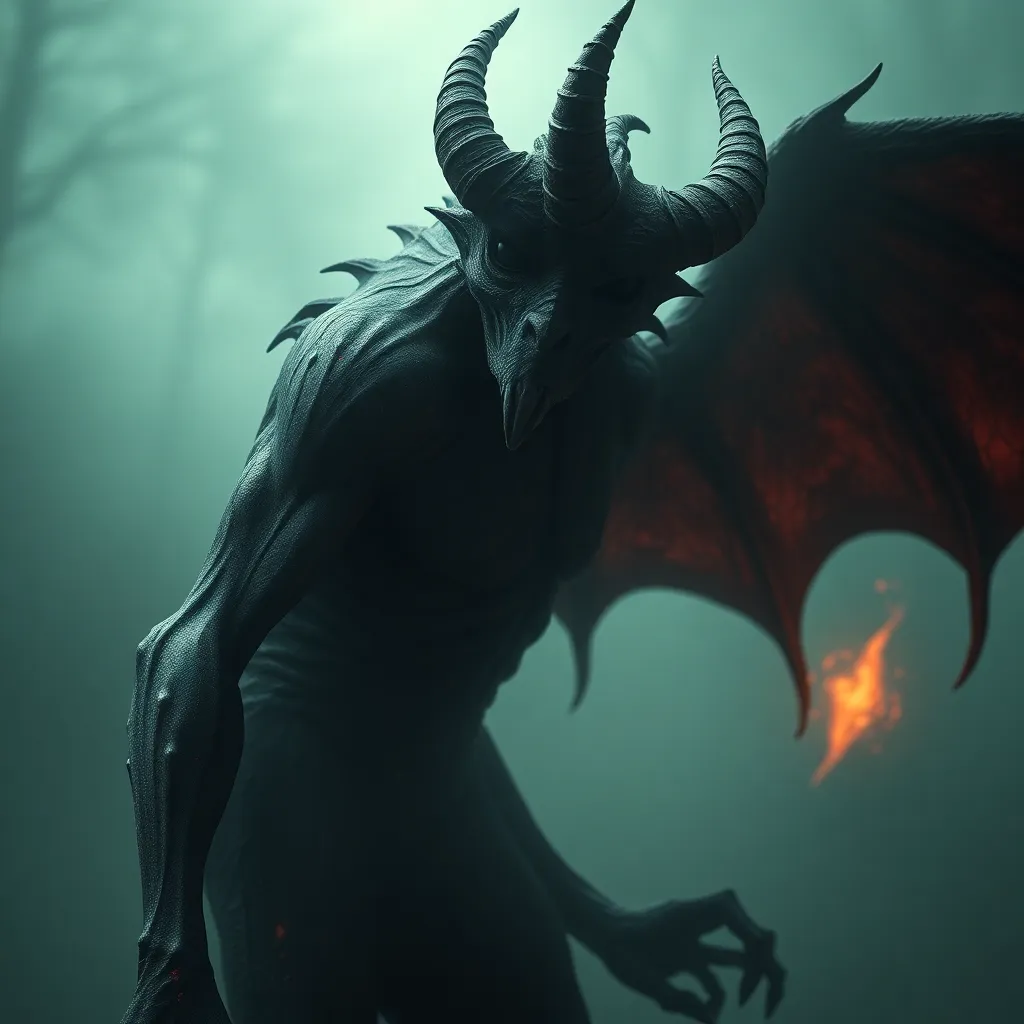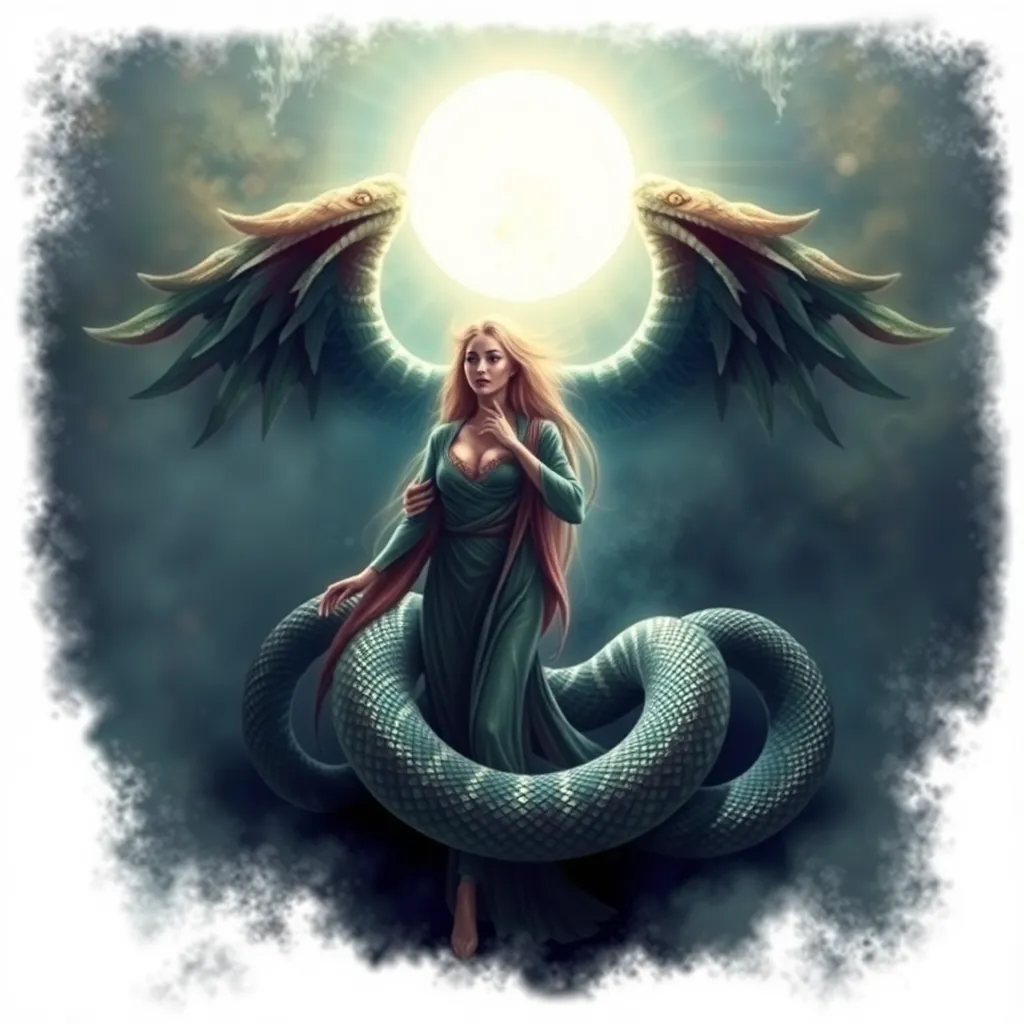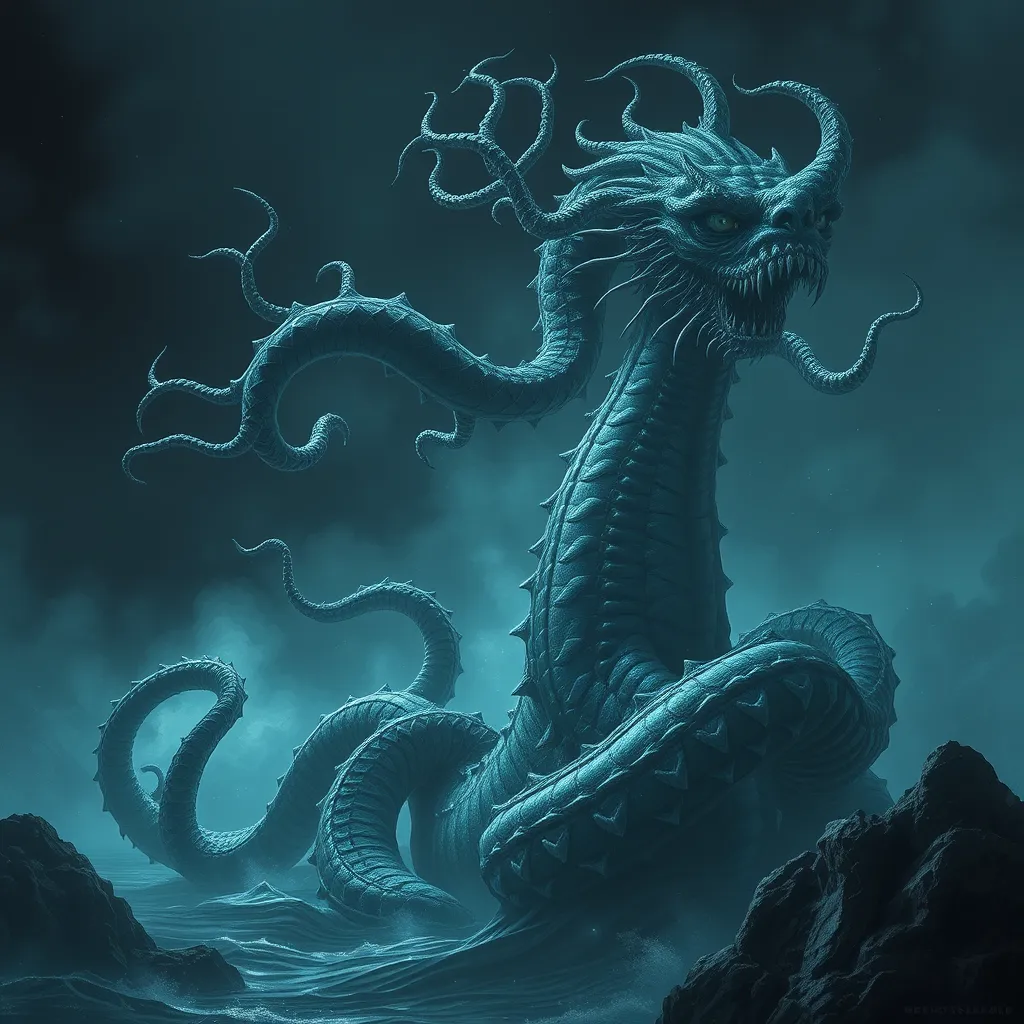Empusa in Modern Media: Examining the Demon’s Presence in Films, TV, and Games
I. Introduction
The Empusa, a phantom figure originating from ancient Greek mythology, is often depicted as a seductive demon that preys on the unsuspecting. This enigmatic creature has evolved over centuries, transcending its dark roots to find a place in contemporary culture.
In modern media, Empusa has gained significance as a symbol of fear, temptation, and the complexities of gender dynamics. This article aims to explore its representation across films, television, and video games, highlighting how these portrayals reflect societal values and anxieties.
II. Historical Context of Empusa
Empusa’s origins can be traced back to the ancient myths of Greece, where she was described as a shape-shifting demon, often associated with the goddess Hecate. Her role in folklore and literature expanded over the centuries, becoming a figure of fascination and terror.
Throughout history, the narrative surrounding Empusa has evolved. In early texts, she was depicted primarily as a harbinger of nightmares and death. However, as literature progressed, her character took on more complex traits, often embodying themes of seduction and danger.
III. Empusa in Film
A. Notable film appearances and adaptations
Empusa has appeared in various films, especially within the horror genre, where demons and supernatural entities are common. Some notable films include:
- The Witch (2015) – While not directly featuring Empusa, the themes of temptation and witchcraft resonate with her mythos.
- Hellboy II: The Golden Army (2008) – Depicts a character inspired by the traits of Empusa.
- The Last Witch Hunter (2015) – Features demons resembling Empusa in their seductive and deadly nature.
B. Analysis of character traits and narrative roles
In these films, Empusa’s character traits often include:
- Seductive appearance that lures victims
- Shape-shifting abilities, allowing her to manipulate her surroundings
- Representation of primal fears related to the unknown and the supernatural
As a narrative device, Empusa often serves as a catalyst for the protagonist’s journey, forcing characters to confront their fears and desires.
C. Audience reception and cultural impact
The portrayal of Empusa in film has generally been met with intrigue, as audiences are drawn to the complex interplay of fear and attraction. The cultural impact is notable, as these films often stimulate discussions about gender roles and the nature of evil.
IV. Empusa in Television
A. Representation of Empusa in popular TV shows
Empusa has also found her way into television series, often depicted as a recurring antagonist or a one-off character in supernatural contexts. Examples include:
- Supernatural – Features a version of Empusa in the context of various mythological beings.
- American Horror Story: Coven – Explores themes of witchcraft and demons, drawing parallels to Empusa’s character.
- Buffy the Vampire Slayer – While not explicitly named, the essence of Empusa is captured in the portrayal of seductive vampires and demons.
B. Comparison with other supernatural entities in TV
When comparing Empusa with other supernatural entities, such as vampires or witches, it is clear that she embodies unique traits:
- Empusa often represents the dangers of unchecked desire, while vampires symbolize eternal life and seduction.
- Her character is more ambiguous in morality compared to the clear good vs. evil dichotomy often seen in other supernatural narratives.
C. Viewer engagement and character development
Audiences engage with Empusa’s character through her complex motivations and the moral dilemmas she presents. This engagement allows for deeper character development, as viewers explore the nuance of her actions within the story.
V. Empusa in Video Games
A. Overview of games that include Empusa as a character or concept
In the realm of video games, Empusa is often represented in various forms. Notable examples include:
- Bloodborne – Features enemies inspired by Empusa, incorporating her seductive and deadly nature.
- Dante’s Inferno – Includes demons that embody aspects of Empusa’s mythos.
- Smite – Incorporates a character based on Empusa, reflecting her mythological roots.
B. Mechanics and gameplay related to Empusa
Games featuring Empusa often employ mechanics that highlight her seductive traits, such as:
- Stealth and deception, allowing players to manipulate enemies.
- Combat styles that emphasize agility and trickery.
C. Community reception and influence on gaming culture
The portrayal of Empusa in video games has contributed to a broader appreciation of mythological figures in gaming culture. Community discussions often revolve around her character’s complexity and the symbolism she represents.
VI. Symbolism and Themes Associated with Empusa
A. Analysis of Empusa as a symbol of fear and temptation
Empusa embodies the duality of fear and temptation, serving as a reminder of the dangers that lurk in the pursuit of desire. This symbolism resonates across various media, reinforcing her role as a cautionary figure.
B. Themes of gender and sexuality in Empusa’s portrayal
Empusa’s portrayal often intersects with themes of gender and sexuality, challenging traditional norms. Her character can be seen as both a victim and a predator, reflecting societal anxieties surrounding female power and sexuality.
C. The psychological implications of Empusa in storytelling
In storytelling, Empusa serves as a psychological metaphor for inner demons and temptations. Her presence often forces characters to confront their fears, resulting in significant character growth and development.
VII. Cross-Media Influence and Representation
A. Interaction between films, TV, and games in depicting Empusa
The cross-media representation of Empusa illustrates a collaborative evolution of her character. Each medium influences the other, creating a richer narrative tapestry that deepens her mythology.
B. Trends in modern media adaptations of mythological figures
Modern adaptations of mythological figures, including Empusa, highlight a trend toward more complex portrayals. This trend reflects a growing audience demand for nuanced characters that challenge traditional narratives.
C. The role of fan communities in shaping Empusa’s narrative
Fan communities play a crucial role in shaping Empusa’s narrative, often generating discussions and interpretations that influence how she is portrayed in new media. These communities provide a platform for exploring the themes and symbolism associated with her character.
VIII. Conclusion
Empusa’s impact in modern media is significant, as she continues to resonate with audiences across various platforms. Her enduring relevance as a mythological figure speaks to the complexities of human desire, fear, and morality.
As we look to the future, there are endless possibilities for Empusa’s representation in upcoming media projects, whether in films, television, or video games. Her character will likely continue to evolve, reflecting the changing dynamics of society and culture.




